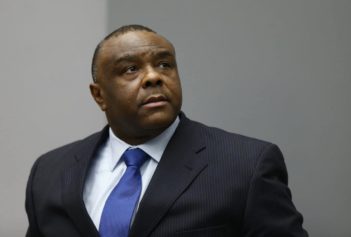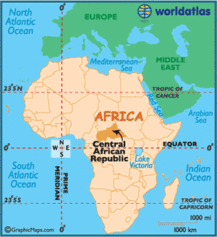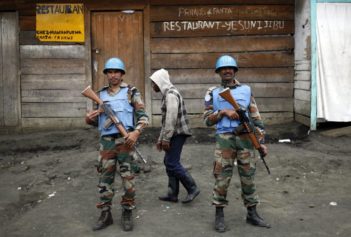
The move is aimed at helping to restore security after more than a year of deadly ethnic and religious violence.
The ban comes after days of violent demonstrations in the capital, Bangui, and a mass text campaign calling for a general strike.
The protesters want the transitional government that came to power in January to resign.
The CAR conflict began last year as mainly Muslim Seleka rebels, led by Michel Djotodia, seized power in the majority Christian country.
Djotodia resigned as president in January under diplomatic pressure, but a interim government and French and African peacekeepers have failed to stop the violence between Christian and Muslim militia groups.
Mobile phone users in CAR now get a message in French saying “SMS not allowed.”
“On the instruction of the prime minister… in order to contribute to the restoration of security in the country, the use of SMS by all mobile phone subscribers is suspended,” Reuters news agency quotes the telecommunications ministry statement as saying.
According to the French news website Jeune Afrique, a letter was sent to CAR’s four phone- mobile operators ordering them to suspend their SMS texting service until further notice.
Orange, Moov, Telecel and Azur are the main mobile-phone providers in CAR, Reuters reports.
A source in the government told the AFP news agency that the suspension of text messages might only last “for a few days.”
On Sunday, Prime Minister Andre Nzapayeke appealed for people to return to work in Bangui after several days of protests which paralyzed the capital.
The protests were triggered by a deadly attack on a church last Wednesday by Seleka rebels.
The Burundian contingent of the African Union peacekeeping forces was also targeted in the subsequent demonstrations, as many of the protesters have accused them of permitting attacks on Christians.
The African Union, France and the European Union have about 7,000 troops in the country where about 25 percent of the population has fled their homes.
Source: bbc.co.uk


